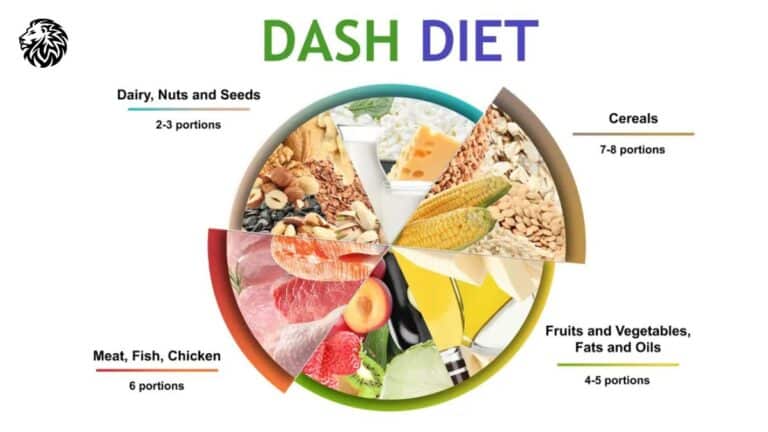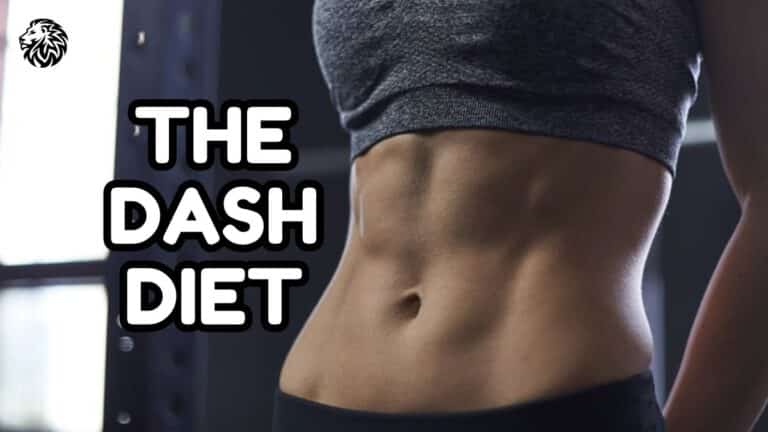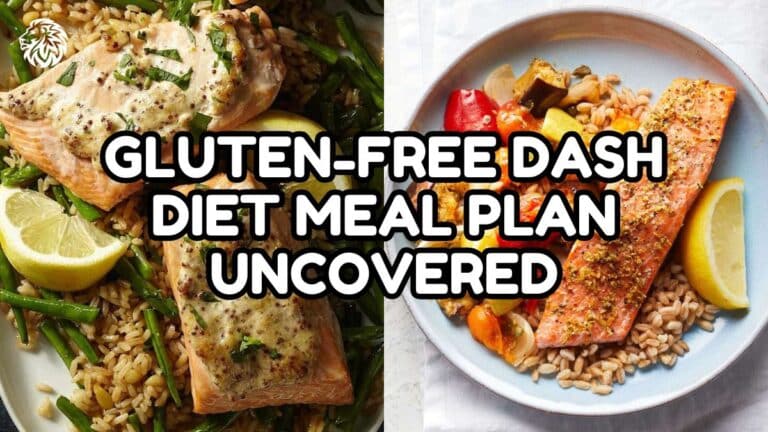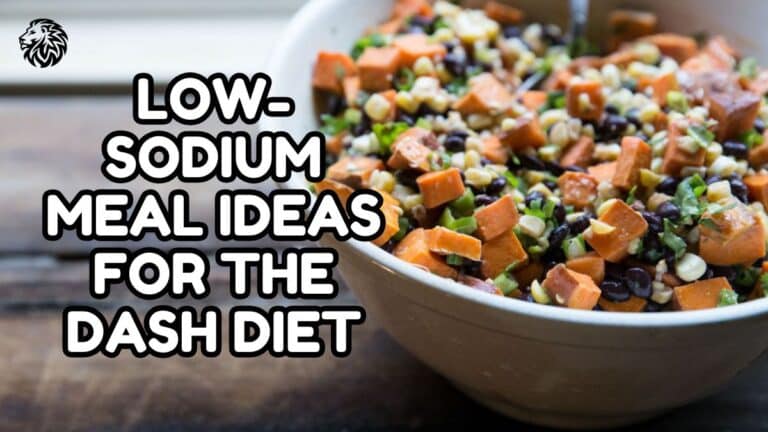The DASH diet, which stands for Dietary Approaches to Stop Hypertension, is known for its focus on improving heart health and managing blood pressure. Many people interested in diet plans often wonder if the DASH diet is a low-carb approach like some popular diets out there. In this post, we’ll explore whether the DASH diet can be classified as a low-carb diet, what it consists of, and how it compares to other diets that emphasize carbohydrate restriction.
Understanding the DASH Diet
The DASH diet was originally designed to help individuals manage and reduce high blood pressure, but its benefits extend beyond that. It promotes a balanced and healthy eating pattern with a focus on nutrient-rich foods. The core principles of the DASH diet emphasize whole grains, fruits, vegetables, lean proteins, and low-fat dairy products. It also encourages limiting foods high in saturated fats, sugar, and sodium.
In short, the DASH diet is not just about lowering blood pressure—it also supports overall health, including reducing the risk of heart disease, diabetes, and other chronic conditions.
Carbohydrates and the DASH Diet
Carbohydrates are a key focus when it comes to determining whether a diet can be considered low-carb. A low-carb diet typically restricts the intake of carbohydrates, aiming for anywhere from 20 to 100 grams of carbs per day, depending on the specific diet plan. The goal of a low-carb diet is to limit foods that are high in carbohydrates, especially refined sugars and starches, which can cause spikes in blood sugar levels.
The DASH diet, however, does not fit neatly into this low-carb category. The plan encourages the consumption of whole grains, fruits, and vegetables, which are naturally high in carbohydrates. These foods provide essential nutrients like fiber, vitamins, and minerals that are vital for a well-balanced diet. While the DASH diet recommends limiting refined carbohydrates, such as sugary snacks and white bread, it doesn’t severely restrict carbohydrate intake as low-carb diets do.
How Carbohydrates Work in the DASH Diet
The DASH diet’s focus on whole grains and fiber-rich carbohydrates is a key aspect of its success in promoting heart health. Whole grains, such as brown rice, oats, and quinoa, are complex carbohydrates that take longer to break down in the body, leading to slower and more stable blood sugar levels. This helps prevent the rapid spikes and crashes that are often associated with simple carbohydrates like white bread and sugary cereals.
Fruits and vegetables, another significant component of the DASH diet, also contribute to carbohydrate intake. However, these foods are packed with essential nutrients and fiber, making them beneficial for overall health. The fiber in fruits and vegetables helps improve digestion, control blood sugar levels, and maintain a feeling of fullness, which can be helpful for weight management.
Comparing the DASH Diet to Low-Carb Diets
Low-carb diets, like the ketogenic diet and Atkins, aim to reduce carbohydrate intake significantly to promote weight loss and, in some cases, manage specific health conditions like type 2 diabetes. These diets typically emphasize high fat and moderate protein consumption, putting the body in a state of ketosis, where it burns fat for fuel instead of carbohydrates.
In contrast, the DASH diet does not limit carbohydrates to such a degree. Instead, it promotes a well-rounded, balanced approach to eating. While the DASH diet may limit refined carbs and sugary foods, it encourages eating nutrient-dense carbohydrates like whole grains, fruits, and vegetables.
Here are some key differences between the DASH diet and low-carb diets:
- Carbohydrate Intake: Low-carb diets severely restrict carbs, while the DASH diet allows for moderate carbohydrate consumption, focusing on whole grains and fiber-rich foods.
- Macronutrient Balance: Low-carb diets are typically higher in fat and moderate in protein. The DASH diet, on the other hand, focuses on a balanced intake of protein, carbohydrates, and fats, with an emphasis on healthy fats and lean proteins.
- Primary Goal: Low-carb diets are often designed with weight loss in mind, though they may have other health benefits. The DASH diet’s primary focus is improving heart health and reducing blood pressure, though it can also aid in weight management.
- Long-Term Sustainability: Some people find low-carb diets challenging to maintain over the long term, especially if they miss foods like fruits, grains, and starchy vegetables. The DASH diet, with its more inclusive approach to different food groups, may be easier for many individuals to follow for an extended period.
Can the DASH Diet Be Modified for Low-Carb Preferences?
While the DASH diet is not inherently low-carb, it can be adapted for individuals who want to follow a lower-carb lifestyle while still benefiting from its heart-healthy principles. By adjusting the ratio of macronutrients, you can reduce your carbohydrate intake on the DASH diet without sacrificing its core benefits.
Here are some tips for lowering carbs while following the DASH diet:
- Limit grains: Instead of including whole grains at every meal, reduce your portion sizes or replace some grain servings with additional vegetables or protein sources.
- Focus on non-starchy vegetables: Vegetables like leafy greens, broccoli, and cauliflower are low in carbohydrates but high in fiber, making them a great choice for a lower-carb approach.
- Choose lower-carb fruits: Berries like strawberries, raspberries, and blackberries are lower in carbs compared to fruits like bananas and grapes. Incorporate these into your meals to keep carbohydrate intake in check.
- Increase protein and healthy fats: If you’re lowering carbohydrates, be sure to replace those calories with lean proteins like chicken, fish, and plant-based proteins, as well as healthy fats like avocados, nuts, and olive oil.
By making these adjustments, you can follow a version of the DASH diet that aligns with lower-carb preferences, while still promoting heart health and balanced nutrition.
Is the DASH Diet Right for You?
The DASH diet offers a flexible and sustainable approach to healthy eating, making it a good fit for many individuals, especially those looking to improve their heart health. While it is not a low-carb diet, it provides a moderate amount of carbohydrates from nutrient-dense sources like whole grains, fruits, and vegetables.
If you’re specifically looking for a low-carb diet, you may want to explore options like the ketogenic or Atkins diets, which focus on carb restriction. However, if your goal is to improve overall health and manage conditions like high blood pressure, the DASH diet’s balanced approach may be more suitable.
For those who want to combine the benefits of both, a modified version of the DASH diet with reduced carbohydrates can be a viable option. Always consult a healthcare provider or dietitian before making significant changes to your diet, especially if you have specific health concerns.
Conclusion
The DASH diet is not a low-carb diet, but it is a highly effective, heart-healthy eating plan that emphasizes balanced nutrition. While it includes carbohydrates, it focuses on the right kinds—whole grains, fruits, and vegetables—that support long-term health. If you’re looking for a diet that promotes overall wellness and can be tailored to your needs, the DASH diet offers a flexible and sustainable approach.







